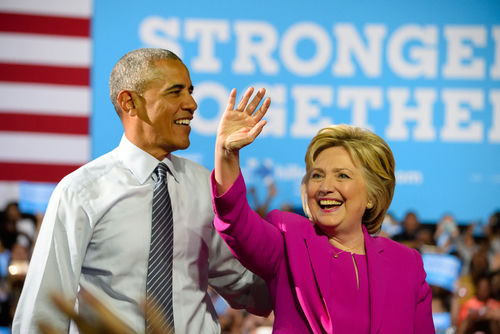Newly declassified documents reveal a political strategy by the Obama administration that could shake the foundations of our democracy.
The Declassified Bombshell
In a move that has sent shockwaves through Washington, the Trump administration has declassified documents that shed light on the origins and conduct of the Russia collusion investigation. These documents, according to Director of National Intelligence Tulsi Gabbard, reveal that the Obama administration may have engaged in a deliberate politicization of intelligence to undermine Trump’s 2016 victory. Gabbard’s statements at a recent White House briefing have stirred controversy, as she asserted the presence of “irrefutable evidence” pointing to a false intelligence community assessment orchestrated by Obama and his national security team.
The declassified materials, now in the hands of the Department of Justice and FBI, are under review for potential criminal implications. The documents reportedly highlight an initial assessment by the intelligence community suggesting that Russia was “probably not trying … to influence the election by using cyber means.” This narrative, however, appears to have been altered post-election in meetings led by Obama, raising questions about the motivations behind the Russia investigation.
Political Fallout and Partisan Debates
The release of these documents has reignited the intense partisan debate over the legitimacy of the Russia collusion investigation. Gabbard’s bold claims challenge the legacy of the Obama administration, accusing it of manufacturing a narrative to delegitimize Trump’s presidency. Critics, however, argue that the context and interpretation of the declassified documents require careful, nonpartisan analysis. The DOJ and FBI’s ongoing review will be crucial in determining any legal consequences stemming from the disclosures.
The revelations have also sparked a broader discussion on the potential erosion of public trust in intelligence agencies. With the credibility of these institutions under renewed scrutiny, calls for transparency and accountability have grown louder. The situation underscores the importance of nonpartisan assessments in safeguarding the integrity of intelligence operations.
Implications and Future Outlook
In the short term, the declassification is likely to heighten political polarization and scrutiny of the Obama administration. As the DOJ and FBI continue their review, the potential for legal investigations looms large. In the long term, this episode could set a precedent for future declassifications and influence the historical narrative of the 2016 election. The implications for public trust in government institutions and media coverage are significant, as conflicting narratives about election integrity and transparency continue to surface.
Beyond the political arena, the intelligence and national security sectors may face increased calls for reform and oversight. Media organizations, too, are under pressure to accurately report and contextualize the developments, ensuring that the public receives a balanced understanding of the situation. As the story unfolds, the role of independent expert analysis will be vital in providing clarity and objectivity.
Sources:
Fox News coverage of Gabbard’s statements and the declassification
Official ODNI press releases detailing the evidence and timeline
AP News video coverage of Gabbard’s press briefing
Official ODNI press releases detailing the evidence and timeline

